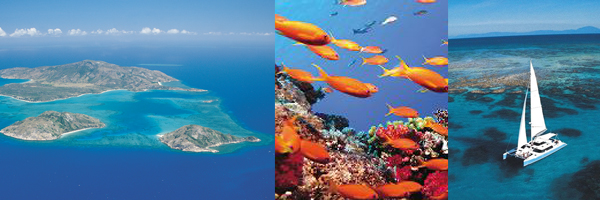Australia, Travel and Climate Change…
To date, all of my blog entries have been about Australiaand New Zealandand some related travel aspect. This comes in the shape whether updates (cyclones or earthquakes), current affairs (World Cup Rugby), highlighting properties (see Cloudy Bay vs Blanket Bay), festivals etc. So far this has been the extent of my updates on the DownUnder Adventure Blog.
As this is a new endeavor for me and my first blog ever I find that it is dynamic enough to use as general communication tool – a way to put a “voice” behind the company. I’m not sure how many people actually read this, but it’s a good way to provide fresh information (and beautiful pictures).
I recently read an article on the Rolling Stone website that talks aboutAustralia, the role of climate change and the impact on its natural treasures such as theGreat Barrier Reef. Although the title of the article is very sensationalistic, “Climate Change and the End of Australia,” it’s interesting to see how the author looks atAustraliaas being on the verge of a dramatic change due to changes in the earth’s atmospheric patterns.
Being in the business of travel and leisure and with a background Master’s degree in Environmental Policy, I found this article particularly interesting.
It can be scientifically proven thatAustraliais suffering extremes in terms of its weather. They in the midst of their worst droughts on record, extreme flooding Tropical Queensland, powerful cyclones worse than those experienced in many years, but also, that coral bleaching is occurring at an alarming rate.
Coral bleaching is the effect of increase water temperature and CO2 in the atmosphere, the byproduct of the “Greenhouse Effect”. This “bleaching” is basically the coral dying off to a point of no return and leaving a ghostly colored coral in place of a vibrant and thriving community of marine species.
For those who have not been fortunate to see this natural wonder in person, this is a great tragedy. This living ecosystem is an aquatic wonderland that is spectacular to witness firsthand. Apart from its touristic value it also is a great natural resource that provides livelihoods to many people, as well as acting as a natural buffer against big storms.
This resource is a one-of-a-kind phenomenon and unique spectacle, like the Great Migration in the Serengeti. The reef stretches over 1,200 miles up the coastline ofAustralia’s northeastern coast. Ask anyone who has gone snorkeling or diving on the reef and they will tell you how impressive it is. The colors, abundance and diversity of fish species, is truly awesome.
It stirs something in us that inspires awe and a desire or wish to share it with others. No one would ever want to keep this to themselves, and if they tried, we would do everything possible to prevent them. This is our role as a tourist. I actually prefer the word traveler. A traveler has a sense of duty whereas a tourist is just there for the T-shirt. We are travelers and witnesses to some pretty amazing things right now, and I think that getting people to see these places, these miracles, is the first step to bringing awareness.
Can awareness bring about change?
It was John Muir, founder of the Sierra Club and avid environmentalist, who famously did this with President Theodore (Teddy)Roosevelt. Muir took him to some pristine areas inYosemiteand told him that it was our duty to protect this for future generations. As a result the national parks system was created.
It is almost as if it is our responsibility to travel and see the world and act as representatives or statesmen to these natural phenomenon. If you need an excuse to travel the world “guilt-free” there it is on a silver platter. You can tell your family and friends that you are doing your duty as a human so that you can bring awareness to these marvels.
Whether it’s talking about our trip with friends, posting pictures on Facebook or Twitter or having your child do a class presentation to their classmates, we never know what may have a lasting impact.
If it’s not our duty it is almost our moral obligation to visit places likeAustralia; to spend some time on theGreat Barrier Reefor go diving on Ningaloo Reef. Who knows what theGreat Barrier Reefwill look like in 100 years from now. The fact of the matter is that it is there now, and we can take advantage of that.
You can see the barrier reef on a day tour, you can spend a few days on a remote island on the reef or spends weeks living aboard a sailboat cruising around the islands at your own pace. If this is something you have ever thought about, the time to do it is now. Go. Travel. Witness. Advocate.
Yours,
Ian


